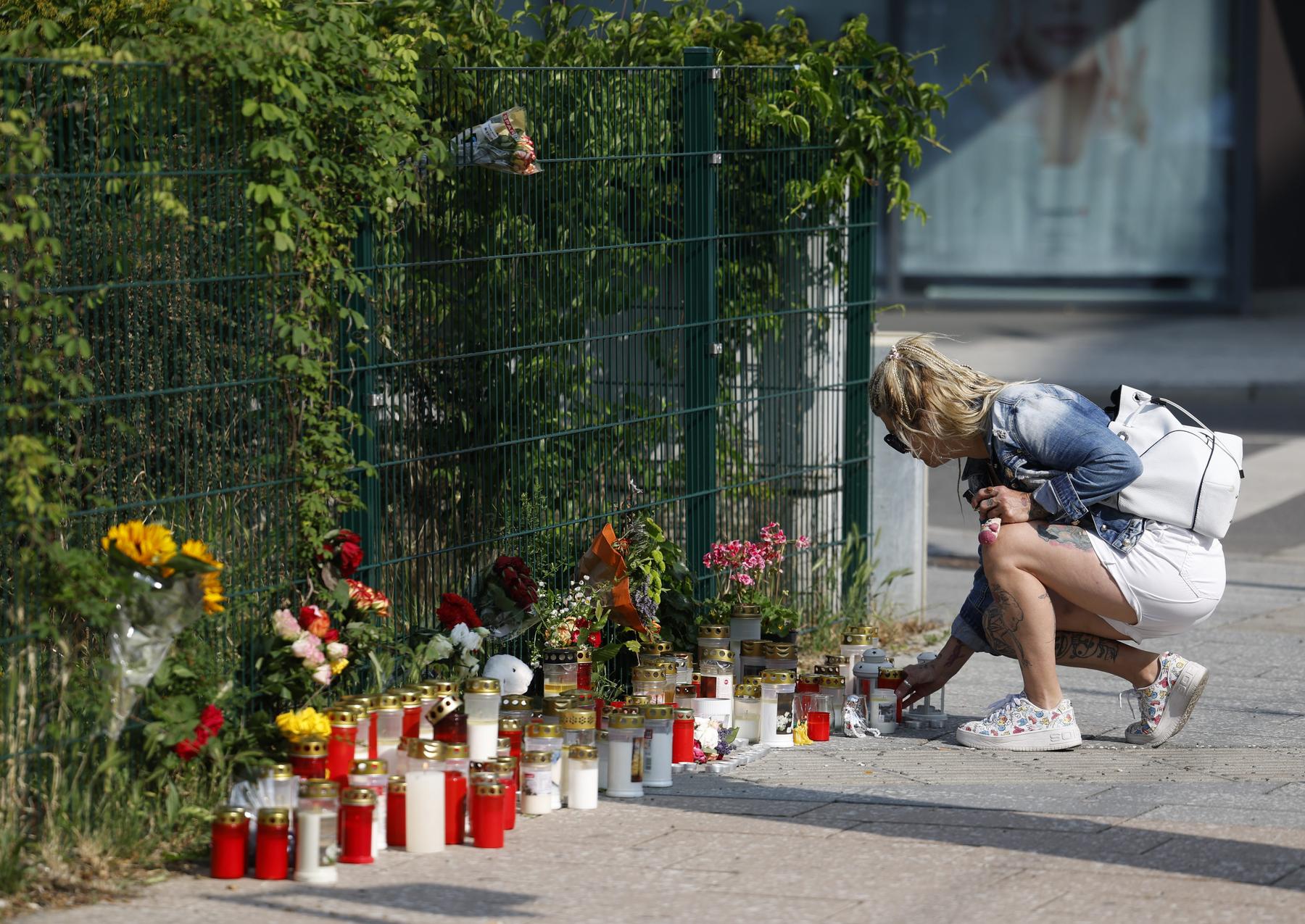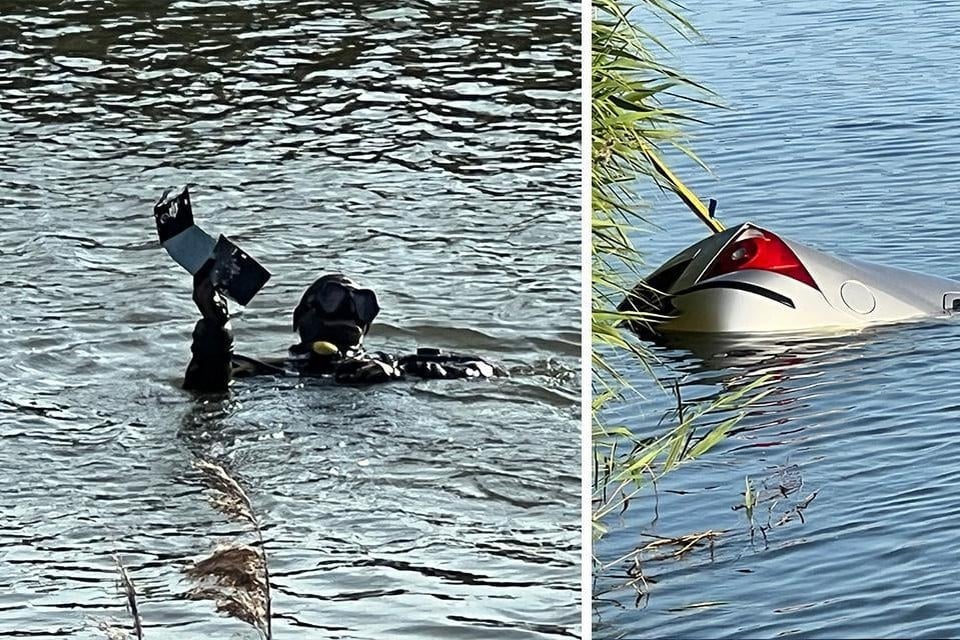The national strikes cannot have the track in the Netherlands
/s3/static.nrc.nl/images/gn4/stripped/data133487735-5a6ef9.jpg|https://images.nrc.nl/fjrNFtLgEkIKyR6dxdRHiszygbA=/1920x/filters:no_upscale()/s3/static.nrc.nl/images/gn4/stripped/data133487735-5a6ef9.jpg|https://images.nrc.nl/jqwW0qGLEhamW_8FOMaGBxfxaNE=/5760x/filters:no_upscale()/s3/static.nrc.nl/images/gn4/stripped/data133487735-5a6ef9.jpg)
Discount during off -peak hours. Better WiFi on board. Sockets in all coupes. In all sorts of ways, the Dutch railways try to persuade travelers to return to the train.
But five years after the start of the Covid 19 Pandemie, the number of train passengers is still not at the old level. Only in 2030 are the trains again as full as in 2019, NS expects. The consequences are clear: fewer travelers means less income and fewer options for keeping the train affordable, punctual, clean and safe.
But instead of tempting people to take the train again, these days it is mainly irritation that generates the track among travelers. And that will probably last in the coming days.
The image of the train and trust in the track as a reliable alternative to the car, get another blow
For the third time within a week, there is now a disruption of train traffic in the Netherlands. With all the unrest, lost office hours, missed exams and fallen family outings. After last Friday and this Tuesday, the trade unions would now also consider taking action next Thursday. Then it would be the turn of the East Netherlands region.
Photo Bart Maat
NS reports on Tuesday afternoon that although the strike will not take place, the train traffic will be inconvenienced. The unions should have signed up a new promotion before 4 p.m. on Tuesday. NS did not receive that report. The trade unions have not canceled the strike yet.
On Friday and Tuesday, NS decided to delete all trains throughout the Netherlands because the timetable in the country is too much related to each other. That applies just so much to the trains that run to and from the east on Thursday.
Millions of missed income
With the national strikes, the trade unions but also NS itself prove poor service in the Netherlands. The train cannot actually use the jammed collective agreement negotiations and the strikes.
Because of the actions, NS is primarily missing millions of income. According to a rough estimate, the missed income amounts to roughly 8.8 million euros per day. In the whole of 2024, the income from traveler transport amounted to almost 3.2 billion euros.
NS cannot miss that income, because the railway company has a hard time financially. Last year it achieved a loss (officially: a negative underlying result without incidental items) of 141 million euros. The company wants to cut around 200 million euros per year, or 5 percent of its costs.
/s3/static.nrc.nl/images/gn4/stripped/data133487727-e1f593.jpg|https://images.nrc.nl/pkFb3mrfy0HlqgV9WsKFIlVJ714=/1920x/filters:no_upscale()/s3/static.nrc.nl/images/gn4/stripped/data133487727-e1f593.jpg|https://images.nrc.nl/LWVjCEl_-wLu05L9ESec-VdxJmk=/5760x/filters:no_upscale()/s3/static.nrc.nl/images/gn4/stripped/data133487727-e1f593.jpg)
Photo Bart Maat
The damage in the longer term is greater. The image of the train and trust in the track as a reliable and sustainable means of transport and as an alternative to the car, get a blow again.
In addition to the structural changes – commuters work at home more often – the punctuality was at the lowest level last year in twenty years. Moreover, the nuisance will grow on some routes in the coming years, because the track stands for the greatest maintenance task ever. Rail manager ProRail has planned 40 percent more necessary work (maintenance, repair, renewal) to make the railway future -proof.
Most travelers showed understanding for the strikes in recent days. Anyone who sometimes takes a late train can see that conductors have a heavy profession if they are scolded by drunk travelers. And many will understand that a service technician of about 67 years no longer wants to run night shifts.
But the collective bargaining negotiations are about more than an improved heavy-work regulation and more human-friendly gratings. Prominent requirement is a higher salary (the unions want 6 to 8 percent wage increase, NS offers more than 2.5 percent). The understanding of the audience seems less large for that. Especially the second-to-last CAO for NS staff had a fairly spacious salary increase compared to other sectors. Employees of regional carriers sometimes even switched to NS because of the higher salaries.
More expensive train tickets
In addition, the train ticket is in danger of becoming considerably more expensive from 1 January. NS wants to increase the rates; The company points to the costs that continue to rise and to the high inflation that it has not been able to pass on in recent years to customers. Traveler organizations are afraid of a rate increase of more than 10 percent. At the beginning of this year, the tickets became more expensive, but that increase was limited thanks to a financial contribution from the government.
However, now that the government has fallen, the question is to what extent the Ministry of Infrastructure and Water Management can release extra budget for train travelers. In the Spring Memorandum, in any case, no budget was reserved for public transport- not even for city and regional transport that took a playful action against new cuts on Tuesday. Buses and trams went honking and rinking through the streets of Amsterdam, Rotterdam and The Hague.
/s3/static.nrc.nl/images/gn4/stripped/data133487763-d80e85.jpg|https://images.nrc.nl/e_GAQQ4oCqtL2XBYu5SnbXmCZJk=/1920x/filters:no_upscale()/s3/static.nrc.nl/images/gn4/stripped/data133487763-d80e85.jpg|https://images.nrc.nl/GJyTmf8XhDAtCHmgsBPpg6-yTQE=/5760x/filters:no_upscale()/s3/static.nrc.nl/images/gn4/stripped/data133487763-d80e85.jpg)
Photo Bart Maat
How to proceed? NS will have to take a first step to get the trade unions back at the CAO table. Work lawyers say that the unions take the initiative for this is not obvious. After all, they would say that the actions have been for nothing. For the time being, the chance also seems small that NS will go to court to have the strikes prohibited: strike is a social fundamental right that is firmly anchored in European rules and judicial judgments.
A strike must be ‘proportional’. A judge is then strictly testing when it comes to actions in public facilities such as public transport, health care and public order (police). Only if public order, security, public health and public morals are seriously at stake will a judge prohibit a strike. According to work lawyers, this is only the case if there are no NS trains in the Netherlands for days in a row.

:format(webp)/s3/static.nrc.nl/wp-content/uploads/2025/06/10210845/web-1006BIN_vanWeel.jpg)
:format(webp)/s3/static.nrc.nl/bvhw/files/2016/12/data7187221.jpg)





